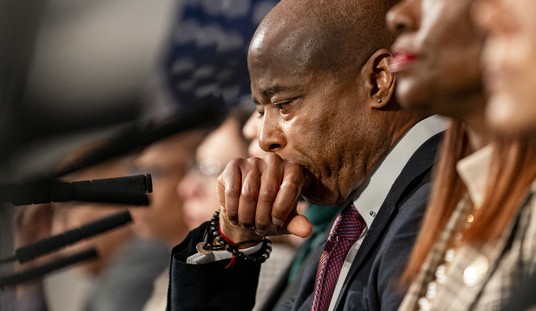Senator Marco Rubio (R-FL) may join the Tea Party Caucus. Should he?
So far, the Senate Tea Party caucus consists of Senator Jim DeMint (R-SC), Mike Lee (R-UT) and founder, Rand Paul (R-KY). What are the planks of the Teaparty caucus?
Senator Lee says this:
“The Tea Party movement is a movement of everyday Americans who have grown tired of Washington playing by their own set of rules. Americans have elected us to be responsible caretakers of their hard-earned money and freedom, and the formation of this caucus gives us the opportunity to listen to the American people and do what they elected us to do. I look forward to working with Sens. Paul and DeMint, in bringing the debate back to Washington DC and to the halls of congress on what the proper role of government is.
I don’t know what this will mean in policy terms.
When Representative Michele Bachmann spearheaded the Tea Party Caucus in the House, I had mixed emotions. When one person or a group of people claim to represent ideas, then the whole movement can be tainted by the missteps of the individual.
Cross-posted at LibertyPundits.
For this reason, Tea Partiers should scorn anyone who claims to lead the movement. One leader, or even a few, puts a bulls-eye on the person and makes a perfect foil for the opposition. If the Left can personalize, discredit and shun one person, they’ll be able to discredit the whole movement. That’s their hope anyway.
In addition, I don’t like a Balkanized House or Senate where special interest groups speak together mostly because their ideas are identity-based: Congressional Black Caucus being an example. Real power comes from good ideas translating into good policy.
The Tea Party principles stand on their own. They are Constitution-based. And, as some have said, if the Republican Party actually would follow first principles or even their own party planks, the Tea Party would be unnecessary. Yet, here we are.
Even with all this, my opinion about the Tea Party Caucus in both the House and Senate has softened. I can see the benefits of educating House members on the tenets of the Constitution. They obviously need it.
So, this brings us to Marco Rubio, shooting star of the Republican movement and newly elected Senator from Florida. What should Senator Rubio do with regards to the Tea Party caucus? Should he join? According to Javier Manjarres of the Florida-based blog The Shark Tank, Senator Rubio is unsure about this correct course:
There’s no doubt that Rubio needs to be held accountable for the principles and positions he advocated on the campaign trail, but does it necessarily follow that Rubio should immediately join the “Tea Party” Caucus in the Senate? Having closely followed Rubio and the campaign from its beginnings, Rubio is both cognizant and grateful of the support he received early on from the Tea Party movement which ultimately led to his victory. In fact, Rubio was labeled a “Tea Party” candidate early in his campaign because of the numerous rallies that he attended, not to mention that he ran a bare-bones campaign across the state for much of the election cycle. Time and again, Rubio’s emotion-filled speeches on the stump strongly resonated and aligned with the Tea Party’s shared principles. Along his road to victory, Rubio made many promises and assurances to voters about how he would vote if elected to the U.S. Senate- but does that mean Rubio should immediately dive head first into the Senate Tea Party Caucus?
Well, Senator Rubio walks a tight rope, does he not? The biggest concern facing Rubio voters, in my opinion, is not being labeled a Tea Partier. It’s being labeled a squish.
In fact, I’ve wondered how Senator Rubio would stand up to the pressure in the Senate to run interference not for the Tea Party but for a group of wishy-washy moderate Republicans seeking cover during their upcoming Senate re-election campaigns. Many of these folks have shaky records, at best, and will need, John McCain-style, help from the conservative, yes, Tea Party members to solidify their cred with the Republican base still disgusted with the lost opportunities during the Bush administration.
Senator Rubio walks this tightrope.
I wonder if becoming a member of the Tea Party Caucus doesn’t strengthen his position with his base and sends a signal to his fellow Senators that he’s serious about reforms and won’t be easily co-opted by compromises that invariably help the big-government cause.
It would help the Tea Party caucus to have some members like Tom Coburn from Oklahoma and Jeff Sessions of Alabama. Somehow I don’t think Lisa Murkowski would fit in well.
Mike Pence, a man pursuing either a Governorship or the Presidency jumped at the opportunity to join the House Tea Party caucus. Governor Rick Perry saw the energy and passion of the Tea Party right away and jumped at the opportunity to participate. Would people consider him a Tea Party Governor? Some would say no, but his platform certainly embraces the principles.
Senator Rubio, more than any other Senator, has long-term big political potential. He must balance being a Senate team-player with being a principled politician and showing respect for those who elected him.
Being a member of the Tea Party caucus would cause heartburn for Senate leaders, but it would be a good way for him to demonstrate his seriousness regarding fiscal discipline.













Join the conversation as a VIP Member